In a world of audience research and programming tactics, radio talent still is the key success factor for morning shows, according to radio strategist Dennis Clark.
“If I’m hired to work with a show, I roll up my sleaves and firefight. I’m actually never asked to go and work with anything that’s in good shape”, says Clear Channel‘s vice president of talent development. Following a personality radio masterclass, he presented a session about radio talent, morning shows, and PPM radio programming at the Radio Festival.
Become a listener friend
Listeners want real personalities who talk about real life experiences. That’s why a morning show anchor should be open about marriage, divorce, dating and children. “It’s creating a relationship with a best friend”, Dennis Clark knows from working with Rick Dees, Ryan Seacrest and Elvis Duran. “If you’re on the air, one person is listening. When two people are in a car, the radio is down and no-one hears what you say. Focus on this one-person communication. Story lines and connecting content are really important.”
 Create a listener profile
Create a listener profile
102.7 KIIS FM’s core listener is Christina, a 23-year old Latina, born in the US. She is unmarried with one child, lives in a suburb of Los Angeles and has multiple jobs to make ends-meet. She cares about the latest gossip and listens to mainstream Hip-Hop and Pop music. The morning show producers are “very aware of her world and all the input that she’s experiencing. That includes her job, her car, her bills, and her friends.”
Define a content filter
Topics, features, guests, prizes, benchmarks, events… all of the morning show’s content is aimed at this listener. “Everything goes through a content filter – anything and everything that Christina loves.” Content research can be very useful. KIIS FM learned that ‘she’ likes to hear about other’s people’s problems, for example. Focusing on 23-year old Christina (while being aware of other demographics) attracts a lot of other listeners, too – people who want to keep feeling young. Ryan Seacrest is #1 in 25-54, and #3 in 54-64.
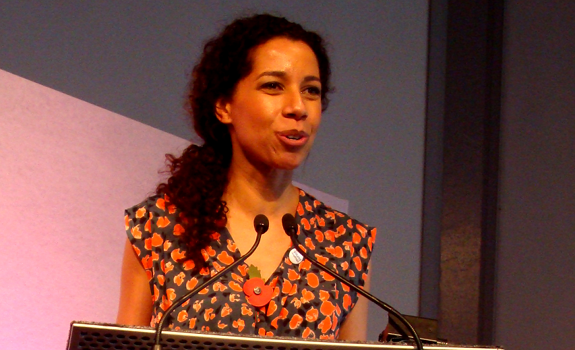
Margherita Taylor is introducing session speaker Dennis Clark to the Radio Festival audience (photo: Thomas Giger)
Enhance the tell-a-friend effect
To make content interesting, involving and relatable, and to give the morning show its unique tone of voice, KIIS FM uses benchmarks such as fun, girls, and local. “There are a couple of other ones which are a big secret”, Dennis Clark says. Content should not only appeal to the audience – it should also be something that they will tell their friends about. Therefore a story needs to be remembered through some kind of crazy edge, unexpected twist, personal flaw or wow-moment.
 102.7 KIIS FM content criteria
102.7 KIIS FM content criteria
LA’s #1 Hit Music Station’s criteria for radio topics are: is it…
Interesting for the audience?
Involving the listener?
Relatable for people?
Repeatable to friends?
Memorable through storytelling?
Offer listener beneficial content
Include as many listener benefits as possible, from weather and traffic to showbiz gossip, depending on what your target audience in your market craves and expects from a morning show. To maximize listener benefits, create format clocks and train your audience to listen at regular times. On-Air With Ryan Seacrest programs sleaze reports at :10 and :30. Read more about making listening appointments and creating tune-in occasions in a separate article about PPM radio programming.
“Your job is to get your audience to care
about your obsessions”
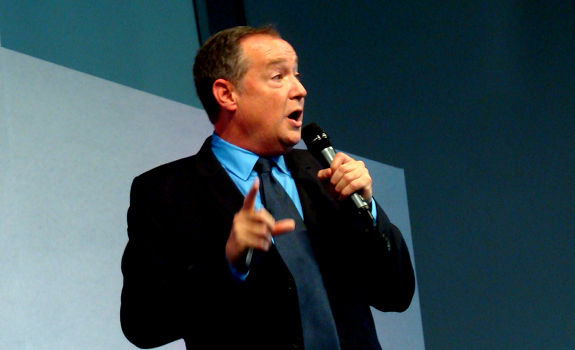
Morning show producer Dennis Clark talks about structuring listener benefit content in clocks (photo: Thomas Giger)
Have regular format brainstorms
“We revisit what the morning show is, who’s listening, and who we are as people every three months. In these quarter-year bootcamps we get everybody together to talk about the audience, show, routines and PPM insights. But Christina is still our target listener; we haven’t changed that in the 6 years that I’ve been working with Ryan.” Dennis Clark says that the foundation of the show is real life, and that listeners do not want to hear pre-produced comedy bits with ‘funny’ voice imitations of famous people. “It’s a tune out.”
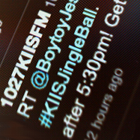 Tease & pay off content
Tease & pay off content
All scientific tools can’t change that the most important factor in the equation of a successful morning radio is still human. “Everything starts with the talent; the way that personalities deliver the show and what’s coming up.” They tease and payoff, and immediately tease something else. KIIS FM does also use Twitter to announce upcoming events, mentioning the time. This has again to do with the fact that people tune in and tune out many times a day.
Know your market competitors
While his other protégé Elvis Duran doesn’t listen to other radio shows and stations, Dennis Clark wants to be competitor-aware. “There are three major competitors of KIIS FM – one in particular. We assess their capabilities and understand what we can do.” He doesn’t mention them by name. But looking at the Los Angeles radio market, one could assume that KIIS FM’s biggest rivals are 97.1 AMP Radio (Mainstream), Power 106 (Rhythmic), and Latino 96.3 (Hispanic Rhythmic).
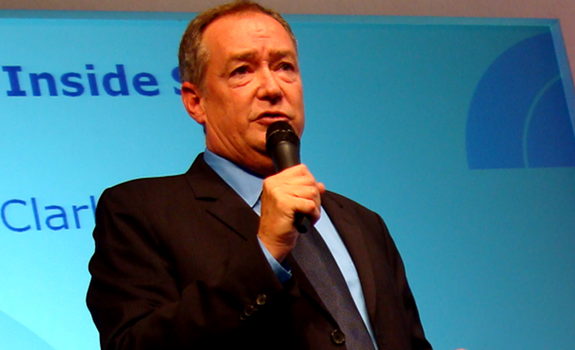
Radio strategist Dennis Clark says that 102.7 KIIS FM is monitoring (3 major) competitors (photo: Thomas Giger)
9 radio programming principles
The best practices in creating successful morning shows according to Dennis Clark:
- Master and re-master the basics
- Understand your target listener’s needs
- Combine focused targeting with broad sensibilities
- Position quality personalities inside the radio brand
- Include humanity and emotion to build your brand
- Use social media to make tune-in appointments
- Create a balance in program content and flow
- Make people talk about the station and show
- Know when to move on to avoid switch-off
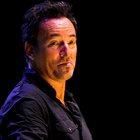 Make your audience care
Make your audience care
Dennis Clark quotes rock star Bruce Springsteen. “He said in 60 Minutes: your job is to get your audience to care about your obsessions. That was when he was asked: What’s your secret? I really thought: wow, let me write that down! That’s just perfect for radio.”
Read also:
- PPM: Radio Programming For Heavy Listeners
- Dennis Clark: “Jingles Are Part Of The Radio Brand”
- Programming (related articles)
Stay tuned, follow us: @RadioILOVEIT




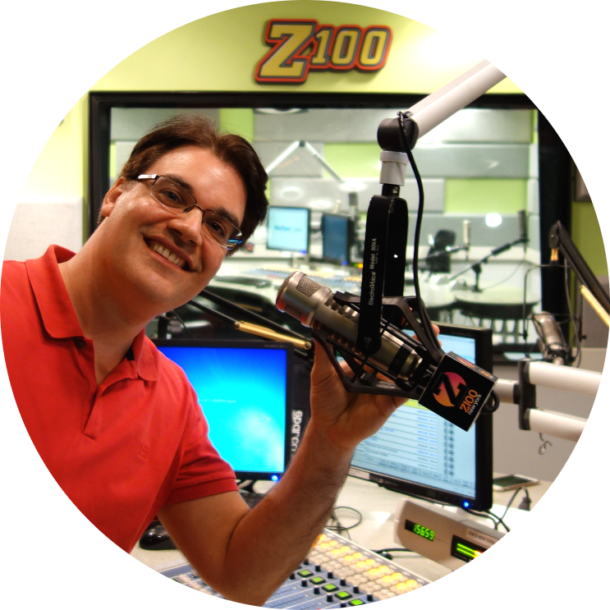
Hi Casey, so great to hear about your journey!
Fantastic that you’ve found that what you truly love, and I feel honored that we at Radio))) ILOVEIT have been able to inspire you.
Lots of luck in your new occupation, and hey – you still have at least 21 great radio years ahead of you, living your passion!!
Very best wishes,
Thomas
I am new to broadcasting at age 44. I have searched my whole life for something that has been right in front of my face the whole time.
I have been in the live music business for 25+ years, so this seems so natural to me. I have spent my whole working career always knowing I was meant to do something more, and I finally found it.
I found these tips very insightful and inspiring. Thanks for the help.
Casey